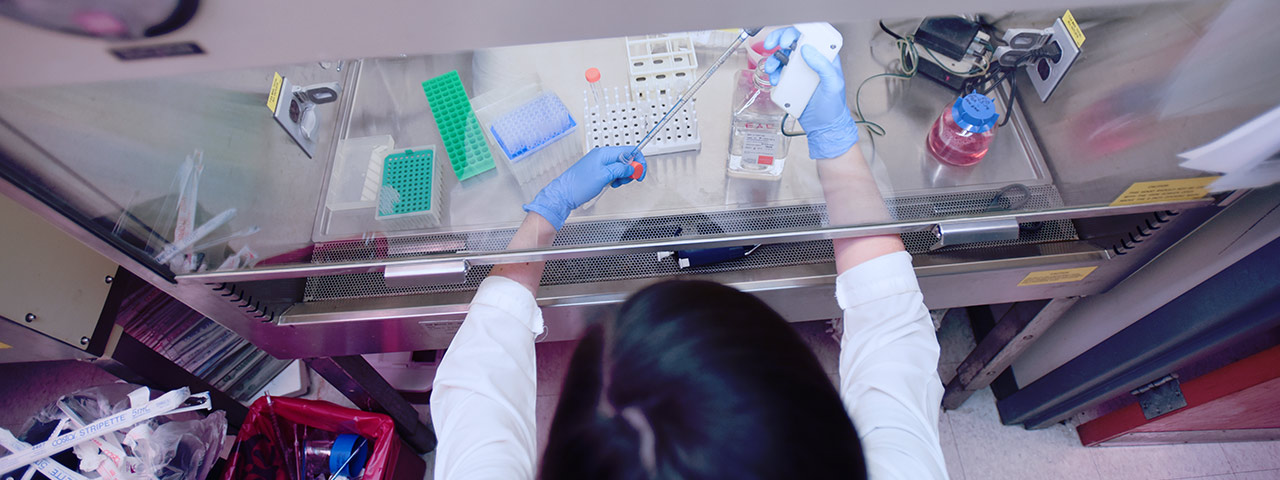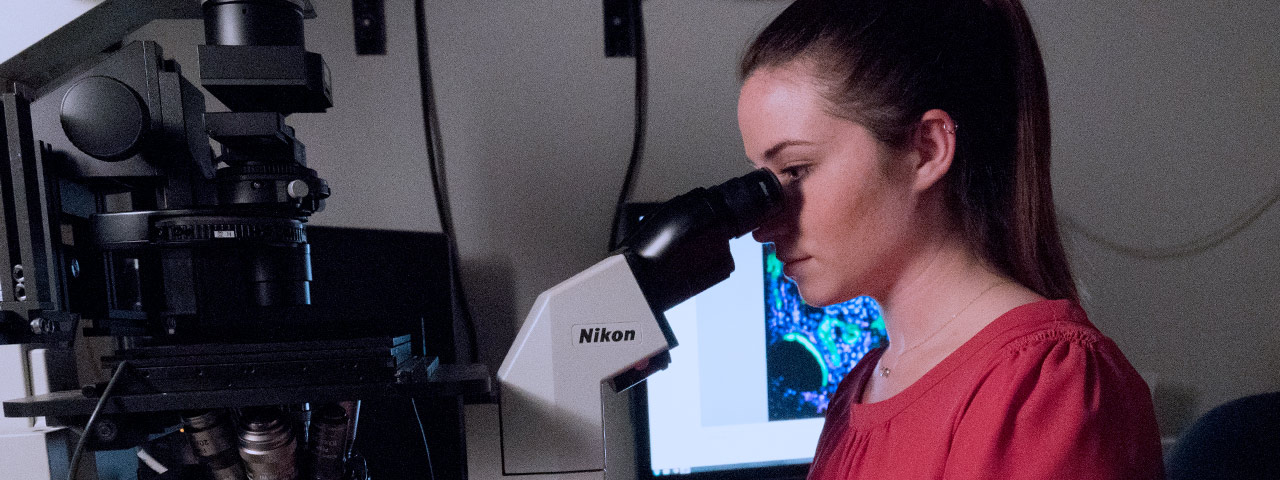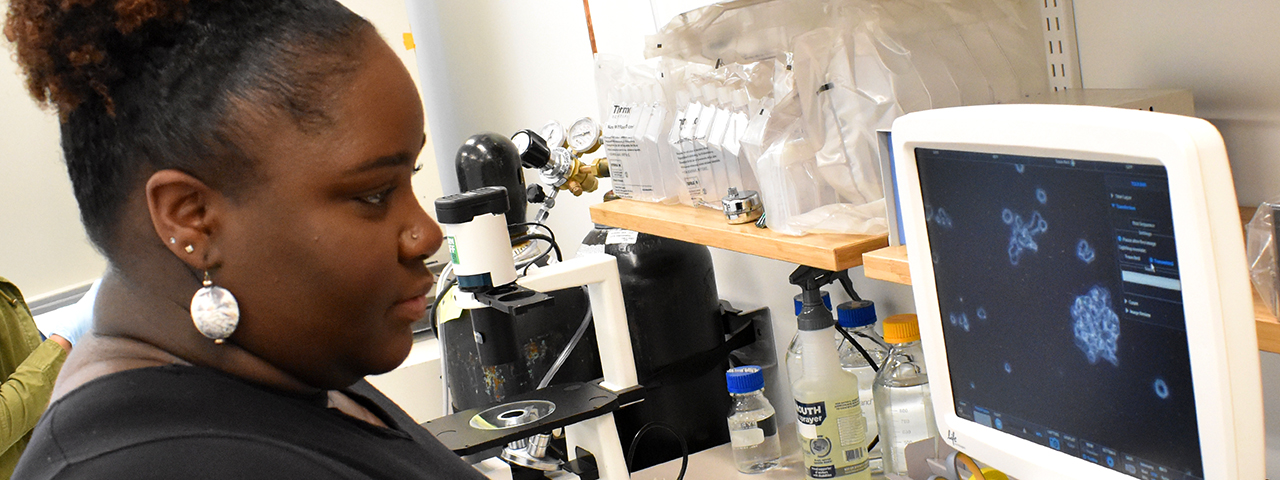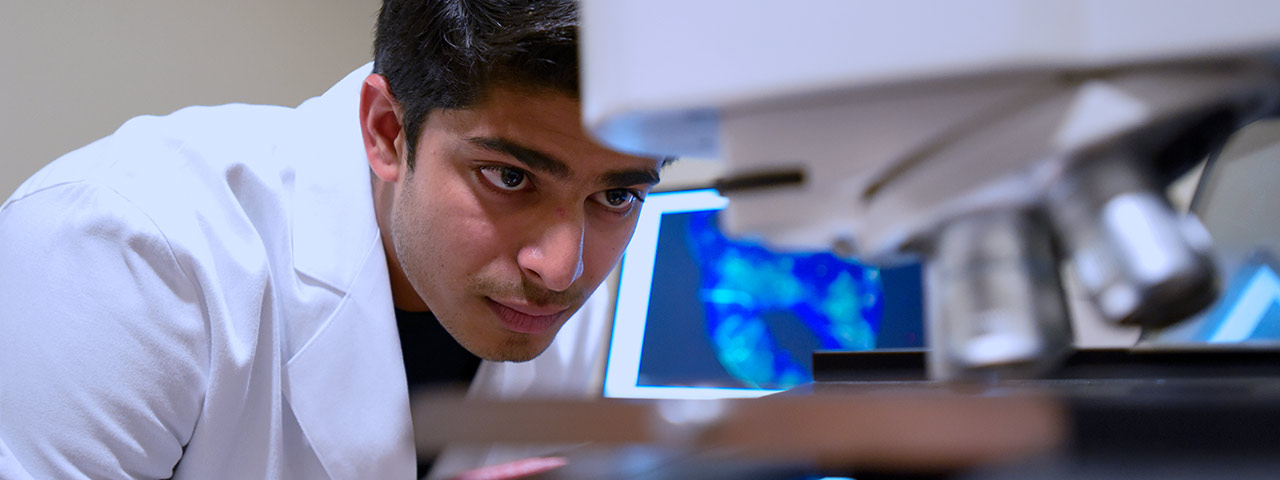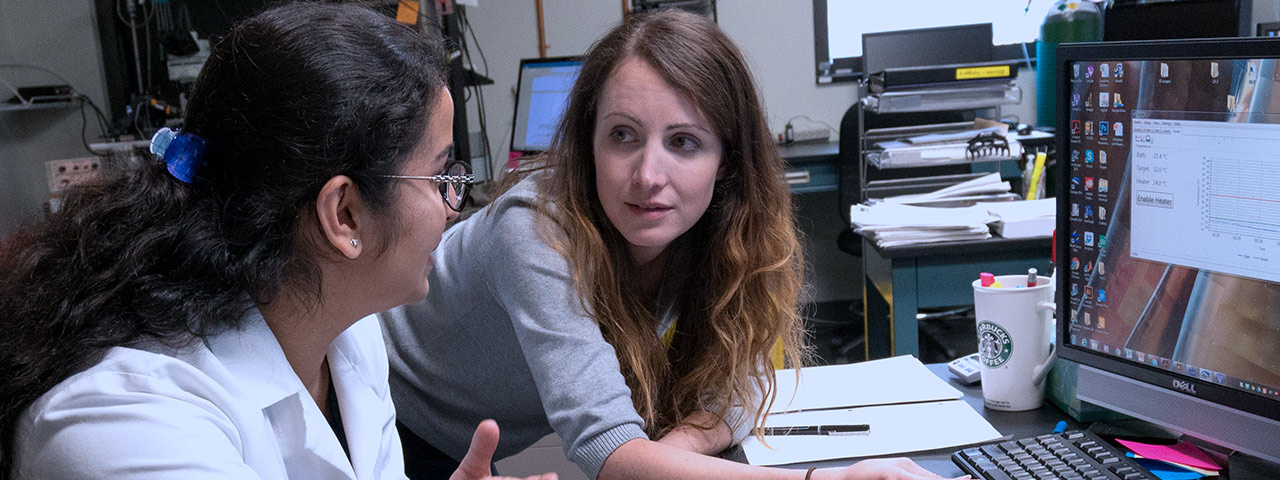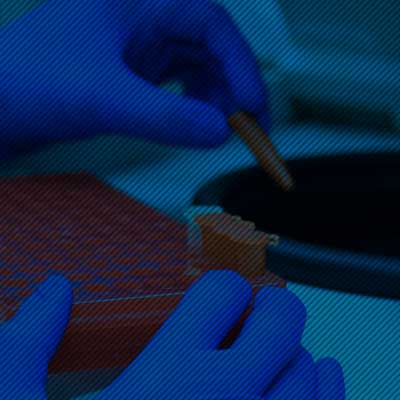IMM Training Plans
Please reference the following IMM training plans for theme-specific curriculum requirements.
2022-2023
2021-2022
2020-2021
2019-2020
2018-2019
2017-2018
2016-2017
2015-2016
2014-2015
If you have any further questions regarding theme requirements, please contact your theme director or GBS Curriculum Manager.
Immunology Theme (IMM)
Research Areas: Cancer Immunology, Autoimmunity, Neuroimmunity, Infection, Mucosal Immunity, Allergy/Asthma
Immunology is one of eight interdisciplinary PhD themes within Graduate Biomedical Sciences (GBS). Students select a theme upon application but have access to faculty and courses from across GBS, allowing for flexibility in both research and academics.
From the outset, UAB has been recognized as a leading academic research institution in the country and one of the world's premier centers for immunology research. Over 90 UAB faculty are actively engaged in immunological research, seen here, including:
- Studies to understand the basic function of the immune system and the underlying pathophysiological processes that contribute to a range of immune-mediated diseases,
- Translational studies that are focused on the development of vaccines and immunotherapeutics, and
- Clinical studies that test novel therapies designed to mitigate immune-mediated diseases.
Immunology plays such an important role in the ongoing research endeavor at UAB that Inflammation, Infection, and Immunity (I3) was recently named as one of the five pillars of emphasis in the strategic plan for the UAB Heersink School of Medicine.
Coursework
The Immunology Theme consolidates immunologists with a diverse range of research interests into a single faculty devoted to training students who aspire to become the immunologists of tomorrow. The theme is structured to allow you to develop your own unique training experience in immunology while you apply the newest, most powerful research tools to the scientific problem of your choice. UAB has immunology research programs that span the entire breadth of the immune system — including innate immunity, lymphocyte biology and mucosal immunology — as well as many aspects of clinical immunology — including transplantation, rheumatology, infectious diseases, neuroimmunology and asthma/allergy (a combination rarely seen at most universities or research centers).
See here for IMM theme requirements.
Why should you join the Immunology Theme at UAB?
We strive to provide outstanding mentorship to our students as well as unique training experiences. Dedicated faculty — including the theme director and co-directors — oversee the program and serve as advisors for our students. An Admissions/Advisory Committee oversees theme operations and the Student Advisory Committee serves as a liaison between the directors and students. Many of our students are funded by our top-ranked immunology training grant, which is one of the oldest and most well-established in the country. In addition, our students have outstanding success in obtaining their own funding through the NIH and research foundations.
UAB is a founding member of the annual Southeast Regional Immunology meeting that provides students with outstanding opportunities to present their research and meet immunologists from around the southeast region. To foster student travel to meetings and away courses, the Department of Microbiology provides opportunities to obtain travel funding for students pursuing immunologically relevant research and training.
Where will this degree take you?
UAB has a large and vibrant immunology community in a highly collegial and collaborative environment, offering excellent educational experiences. This will help you identify the research that excites you and expose you to state-of-the-art techniques in immunology, thereby fostering your success going forward. UAB excels in its professional career development training opportunities, and our alumni go on to careers in academic and industry research, teaching, science policy, science writing, and more. Learn where GBS graduates are now. If you have any questions about the program, do not hesitate to contact any of the theme directors. We hope that you will consider UAB for your future training as we are committed to making it an outstanding experience for you.
Elizabeth Morgan
Holly Stephens
Keun-You Tsai
Xianyou Xia
IMM Theme Contacts

Theme Director
Dr. Louis Justement
(205) 934-1429

Theme Co-Director
Dr. Craig Maynard
(205) 996-0136

Theme Co-Director
Dr. Laurie Harrington
(205) 996-9795
IMM Theme Curriculum
Year One
During the Fall semester you will take GBS Core Courses. The second and third semesters of your first year provide a strong background for your research.
Spring Semester
- Module 1 (January) — GBS 740A: Introduction to Immunology, Part 1
- Module 2 (February) — GBS 740B: Introduction to Immunology, Part 2
- Module 3 (March) — GBS 744: Mucosal Immunology
- Module 4 (April) — GBS 741: Lymphocyte Biology
Summer Semester
All GBS students are required to take GBS 722: Intro to Biostatistics and a May module. IMM requires the following module:
- Module 5 (May): GBS 726: Science Communication & Review
These courses are in addition to the GBS required courses of Lab Rotations.
Year Two and Beyond
- Courses:
- GBS 798: Non-disseration Research OR GBS 799: Disseration Research
- GRD 717: Bioethics (Fall, second year)
- GRD 701: Presentation/Discussion Skills (Spring, second year)
- GBSC 722: Development of Communication Skills for Biological Research (third year and beyond)
- Seminars: Program in Immunology Seminar is recommended (no registration required).
- Journal Clubs: Students can register for journal clubs that are related to their research.
- Advanced Courses: All GBS students must take three advanced courses before graduation. One off-campus course can count for advanced credit.
- Committee Meetings: Your committee will meet every six months, October/November and April/May.
- Qualifying Exam and Admission to Candidacy: Complete before the end of year three.
- Publications: Two accepted or published papers.
- Presentations: At least one presentation at a national or international scientific meeting.
All theme students are required to participate in theme functions, including:
- Theme meetings
- Recruiting
- Public defenses of dissertation for fellow theme students

